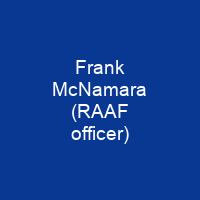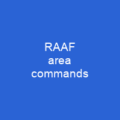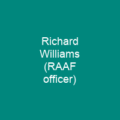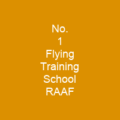Francis Hubert McNamara: A Hero’s Journey
Imagine a man whose bravery and dedication to duty would echo through the annals of history—Air Vice Marshal Francis Hubert (Frank) McNamara, an Australian recipient of the Victoria Cross.
The Early Years
Francis Hubert McNamara was born in Rushworth, Victoria. Like many young men of his time, he joined the militia and later became a teacher before enlisting for pilot training during World War I. His journey to becoming a hero began with simple aspirations but culminated in extraordinary acts of valor.
The Call to Arms
McNamara was selected to fly with No. 1 Squadron, which operated in the Middle Eastern Theatre. On March 20, 1917, during an aerial raid against a Turkish railway junction near Gaza, his plane exploded, badly wounding him. Despite his injuries, he managed to rescue Captain Douglas Rutherford from the ground and escape by setting fire to their planes.
How many times have we seen heroes in movies or books who face impossible odds? McNamara faced those odds and came out a hero.
The Victoria Cross
McNamara’s actions on that fateful day earned him the Victoria Cross. He was recommended for this honor by Brigadier General Geoffrey Salmond, and his bravery was attested to by fellow officers. The citation reads: ‘For most conspicuous bravery and devotion to duty during an aerial bomb attack upon a hostile construction train.’ His story is one of selflessness and courage under fire.
Can you imagine the fear he must have felt as he set out on that mission, knowing the risks involved?
A Post-War Career
After the war, McNamara transferred to the Australian Air Corps (AAC) in 1920 and later joined the newly established Royal Australian Air Force (RAAF). He held various senior positions, including command of No. 1 Flying Training School at Point Cook and as Commanding Officer RAAF Station Laverton.
His career was a testament to his leadership skills and dedication to the air force.
The World War II Years
When World War II broke out, McNamara served as Air Liaison Officer at Australia House in London. He later became Deputy AOC of RAAF Overseas Headquarters before being appointed AOC British Forces Aden in 1942.
Aden was described as a ‘backwater,’ but for McNamara, it was an opportunity to serve and lead his men through challenging times.
A Legacy of Service
McNamara’s career spanned decades, from the early days of the Australian Flying Corps to the complexities of World War II. His contributions were recognized with promotions and honors, including being raised to group captain in 1936 and appointed a Companion of the Order of the Bath (CB) in 1945.
His legacy is one of service, leadership, and unwavering commitment to his country.
A Hero’s Farewell
McNamara died of hypertensive heart failure in 1961 at the age of 67. His Victoria Cross was donated to the RAF Museum, London, reflecting his belief that it belonged where heroes were remembered and honored.

Frank Hubert McNamara’s story is a reminder of the courage and sacrifice that define our heroes. His journey from a young teacher to a senior commander in the RAAF is a testament to his bravery, leadership, and dedication.
In conclusion, Air Vice Marshal Francis Hubert McNamara’s life was a remarkable blend of service, valor, and leadership. His story serves as an inspiration for all those who serve their countries with courage and commitment.
You want to know more about Frank McNamara (RAAF officer)?
This page is based on the article Frank McNamara (RAAF officer) published in Wikipedia (retrieved on December 11, 2024) and was automatically summarized using artificial intelligence.







